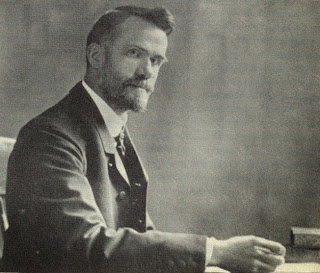Rauschenbusch and the "Kingdom of Evil" (3): Rorty Weighs In

My wife made a wonderful find at a used book store -- the centennial reprint of Walter Rauschenbusch’s seminal manifesto, aptly retitled Christianity And the Social Crisis in the 21st Century: The Classic that Woke up the Church (New York: Harper One, 2007). The original text is interspersed with commentary from several famous contemporary thinkers in the fields of religion and ethics. The book is edited by great-grandson Paul Raushenbush, religion editor with the Huff Post and former Associate Dean of Religious Life at Princeton University. (For some reason, his version of the family name drops the two Cs) The afterword was penned by another descendant of W.R., the late philosopher and avowed secular humanist Richard Rorty (pp. 347-350). Rorty was Walter Rauschenbusch’s grandson, and his comments bespeak the challenging yet ambiguous prospects in our day of his ancestor’s Christian social vision. Richard Rorty Rorty claims, first, that Rauschenbusch’s vision for social Christia...
